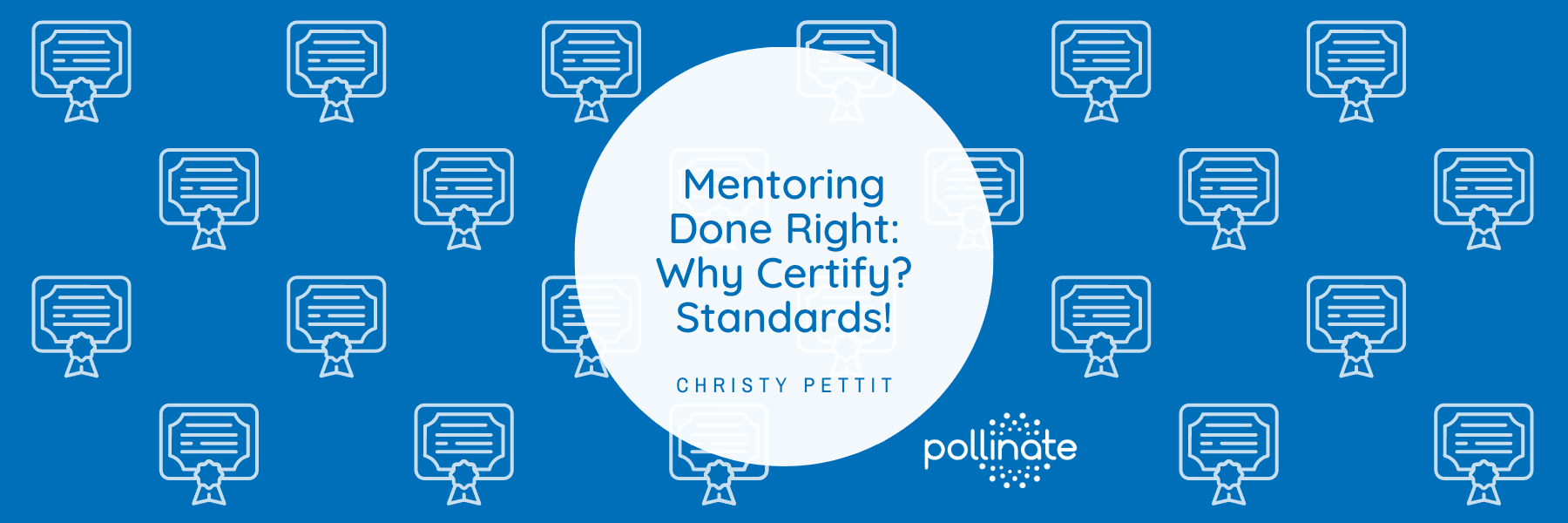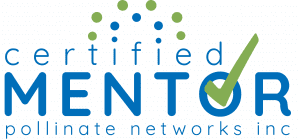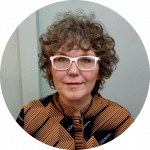
Healthy organizations increasingly understand that a workplace mentorship program is an extremely effective way to engage and retain talent. A recent Harvard Business Review headline even declared, “Mentoring Should Be Mandatory.” But for that approach to succeed, it’s important that employers step away from the thought that mentorship occurs through a natural, organic process. It needs a framework to be effective.
That understanding puts a lot of momentum behind the latest initiative from Pollinate Networks Inc., creators of the top-tier mentorship algorithm Cross-Pollinate AI. Following two rounds of successful beta implementation through the Business Centre Guelph Wellington, in a program championed by its Executive Director Kristel Manes, Pollinate is excited to be offering a path to mentoring certification.
Why get certified as a mentor?
For one thing, people no longer live and work in small communities. It’s not possible to walk up to someone you admire and expect them to have the time, inclination, expertise, or even skills necessary to mentor effectively. Pollinate Certified Mentorship aims to change that by offering a course that encapsulates a wealth of knowledge around best practices in mentorship. Certification is available for individual mentors, and can also be tailored for organizations that wish to establish or credential their own mentorship programs.
Having a formal mentorship program with a certified mentor lends credibility, and also minimizes risks to both parties (not to mention companies/institutions). The absence of any real industry standard also leaves room for Pollinate to draw that line in the sand – a role for which they are extremely well equipped, and have been preparing for years.
“It’s taken a long time – but I finally feel like a ‘black belt’ in this,” says Knowledge Transfer Index creator and Pollinate CEO Christy Pettit, who co-founded the company fourteen years ago with Giovanni Salas. “I have seen every variety, every possibility of [mentor/mentee] pairing. I think we are the most qualified to offer this certification opportunity. While some mentorship training programs do exist, what they lack – and what we offer – is a set of standards.”
One such standard would be clarification around the role of mentor, which is often conflated with that of a coach or even sponsor. (Quick refresher: as the saying goes, a coach talks TO you, a mentor talks WITH you, and a sponsor talks ABOUT you.) Pettit feels that digging into these differences is vital to moving the mentee’s goals forward.
“The mentee is always driving,” Pettit explains. “The mentor navigates and occasionally steers – but the mentee drives.” It’s not just about mentees, however.
“Mentorship is very engaging, and extremely rewarding,” says Pettit, “especially when they’re prepared with the right tools. If you’re mentoring someone, you should know about this program.”
Pollinate’s Certified Mentorship Program core curriculum is grounded in its key knowledge of mentorship best practices.
“We know that telling stories is better than spouting facts. We know that asking questions is better than giving advice. We know that managing unconscious biases and understanding and acknowledging privilege is the best way to de-risk the mentorship process,” emphasizes Pettit.
She also knows that learning styles play a role. It’s important for mentors to understand how to best collaborate with their mentees. Some thrive with lots of interaction, need to bounce ideas around, and enjoy energetic exchanges – others prefer minimal dealings with others.
“Two interesting, talented people can have great conversations,” Pettit remarks, “but are they the right conversations?” She believes the Pollinate program has something to offer everyone, even experienced mentors.
“You may have been mentoring for a long time – or even been mentored – but this is still really good skills fortification.” Others might wish to take advantage of the opportunity to dig into the treasure trove of mentoring knowledge Pollinate has accumulated over the years, presented in a highly digestible and applicable fashion.
“Just to make sure they’re doing the right things as a mentor,” suggests Pettit. Pollinate’s certification path teaches Socratic questioning as a foundational skill. It also acknowledges issues of diversity, equity, and inclusion. It reinforces boundaries and expectations, and provides a framework for mentor practitioners to offer trauma-informed support:
“Because stuff comes up,” says Pettit. “Our research shows that 30% of a typical mentoring conversation is dedicated to what we call ‘opportunistic’ topics; someone’s had a bad day or whatever. That’s okay!”
But a good mentor will steer things towards the goal at least 60% of the time, with the remaining 10% of time dedicated to miscellaneous or “floating” topics. They’ll also ensure that expectations for the frequency, length, and “shape” of meetings are explicit and clear, so that the mentee shows up prepared to do the work at hand.
“People talk a lot about IQ and EQ – a few years back, we created the MQ, the Mentor Quotient Program,” Pettit says. “We need to make that a measure of the health of an organization: what’s their MQ?” Pettit believes organizations stand to greatly benefit from Pollinate’s focus on mentorship from its inception. The company has been in this game for many years now, and has built relationships with a diverse array of partners, whose strengths and insights can now be shared with certification candidates. But the ultimate goal of this innovative program is to teach mentors how to better guide mentees to think for themselves.
For more information about Pollinate Certified Mentorship, follow us on LinkedIn – and watch this space!
 Anne Marshall, Freelance Writer & Editor
Anne Marshall, Freelance Writer & Editor
Anne is a freelance writer and editor who has been writing articles, listicles, advertorial, blog posts, interviews, profiles, case studies, assessment tools, cover letters, surveys, oral histories, “Best Of”s, newsletters, correspondence, and other prose for a variety of clients – private, commercial, corporate, non-profit, and journalistic for many years. If it needs to be written, Anne can probably write it.





